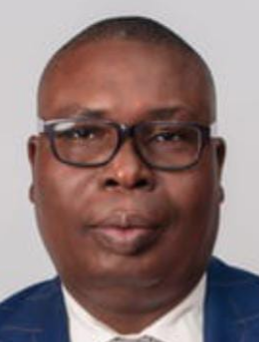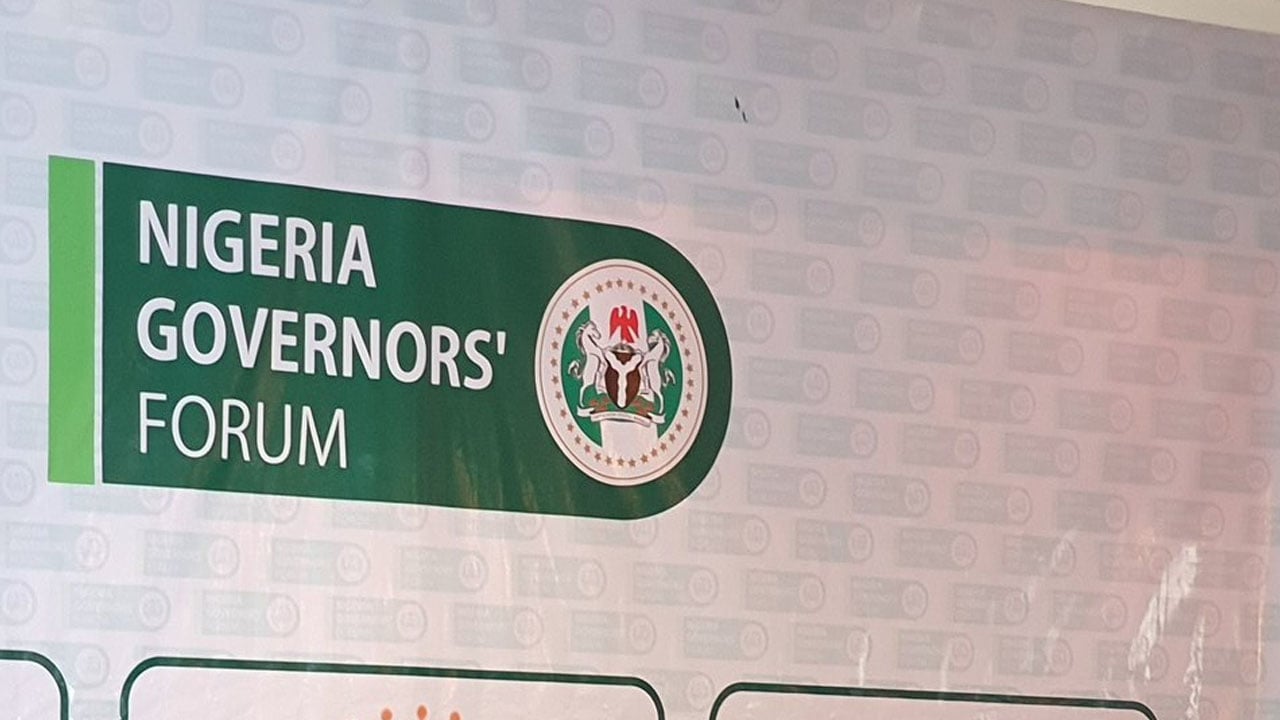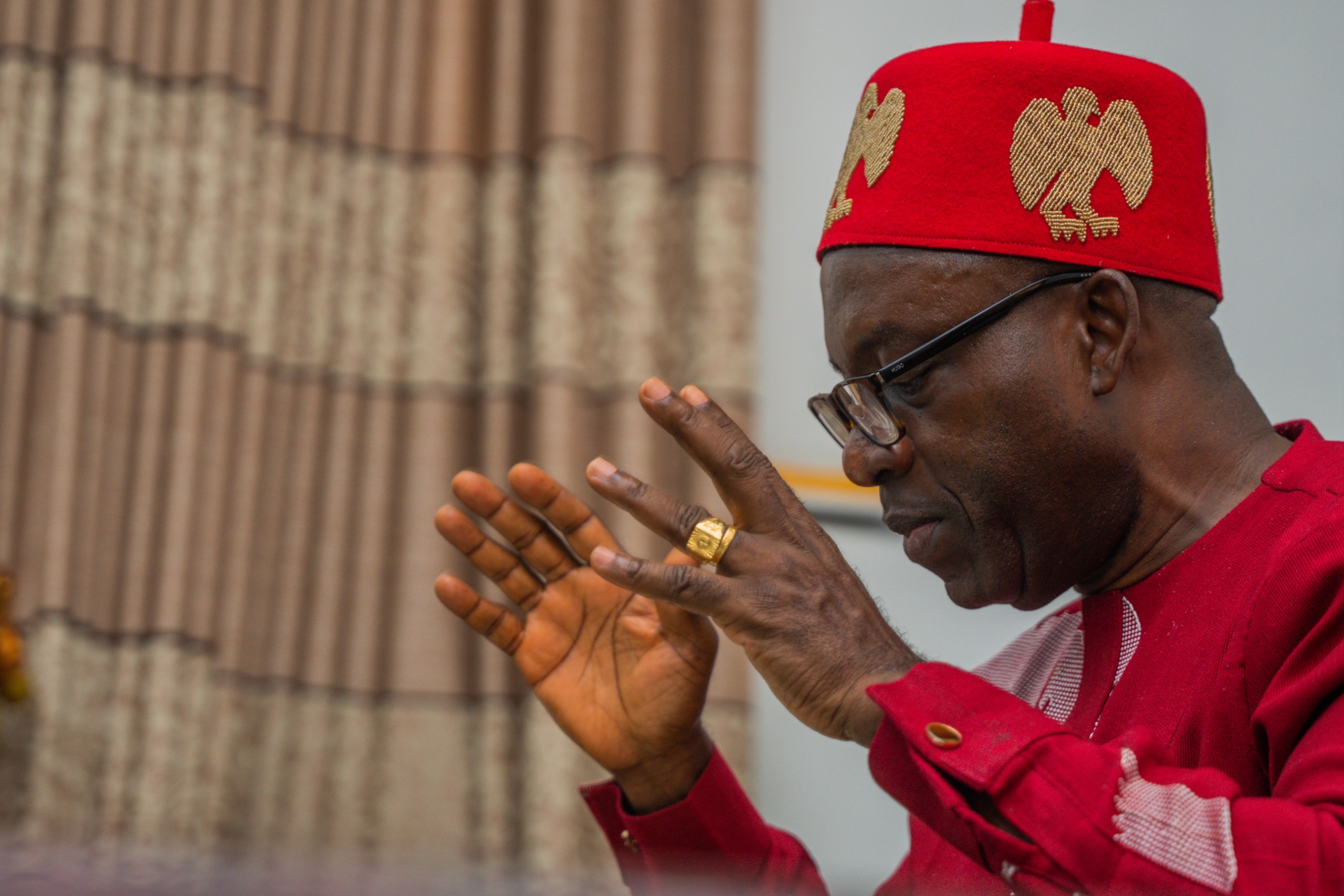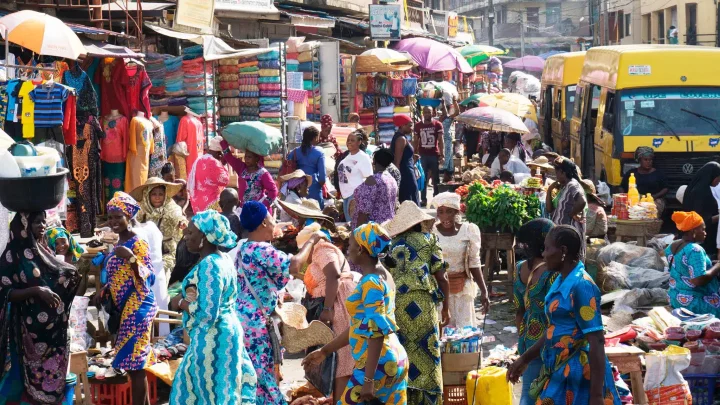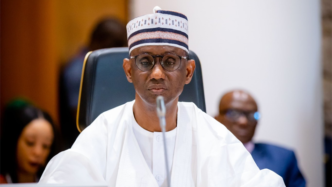Leadership problem has been unanimously accepted as the major cause of Nigeria’s lack of progress and development. This problem has two dimensions: (a) The leadership issue (b) The leadership supply chain issue.
A. THE FIRST DIMENSION: THE ISSUE OF BAD LEADERS
“A leader takes people where they want to go. A great leader takes people where they don’t necessarily want to go, but ought to be.”
-Rosalynn Carter
Nigeria is where it is largely because of bad leaders. The country hasn’t been moving in the right direction because we are overwhelmingly gifted mostly with leaders whose idea of leading is just to walk into leadership opportunities / position without really or truly preparing themselves for leadership.
Advertisement
Most Nigerian leaders aspire for leadership position without understanding the what, why and how of leadership. The position matters to most leaders in Nigeria more than the purpose of the position. They love the position because of the power, glory, honour, fame, prestige and the pecuniary benefits attached to the position. They are largely ignorant of the purpose of the position. They don’t know that the purpose of a position is the ultimate in the hierarchy of things connected to a position. A leader is a failure if he or she gains everything connected or attached to a leadership position but fails in achieving the purpose of the position.
Wherever there is an abundance of leaders who don’t understand purpose, development is arrested, the people suffer needlessly and the nation moves backwards steadily. The preponderance of leaders with infinitesimal understanding of the purpose of leadership in the public sector and to a large extent in the private sector too is one of the biggest Setbacks to Nigeria’s destined greatness.
There is a powerful connection between purpose and vision. Whenever purpose is clearly understood and wholesomely embraced, vision surfaces almost effortlessly. And whenever the vision for achieving a purpose is crystal clear and the leader is totally committed to the purpose and the vision, provision finds its way in. This is the secret of UAE’s rapid development. Saudi Arabia has embraced this same idea of purposeful leadership ideology and is now the fasted developing country today. Nigeria has a lot to learn from Saudi Arabia’s Vision 2030.
Advertisement
Most Nigerian political leaders at the National and Subnational levels have never been able to envision a great vision of sustainable development for the country in all honesty. At best, the understanding of purpose of leadership of most leaders in our country is either non existing or at best accutely elementary. This was why Gen. Sani Abacha’s vision of everything for all Nigerians by year 2000 never took off. This was the reason President Yar Adua’s vision 202020 died at conception. This is why the ‘vision’ of most of our political gladiators have never impacted the nation and the states positively despite the humongous resources expended on them.
B. THE SECOND DIMENSION: A TERRIBLY POOR LEADERSHIP SUPPLY CHAIN
“To every problem, there is a most simple solution.” This position by Agatha Christie is instructive in any attempt to proffer solutions to the leadership problem of Nigeria. For me, the most simple solution to the leadership problem of Nigeria is to focus on the pool that produces the political leadership in Nigeria – the society.
Sometimes ago in a long lost land, one hundred final year students in a high school sat for their final examination. Two students passed the exams with fifty – five percent score. The remaining ninety – eight failed with the best of them scoring a meagre twenty -six percent. Who is responsible for this mass failure? Is it the students that should be blamed or is it the school’s fault. Would we be fare if we blame only the students and exonerate the teachers? Can we blame the teachers alone and absolve the students of blame?
Advertisement
This simple analogy reflects perfectly the leadership problem of Nigeria. The students are our leaders. The examiner is our political leadership/governance space. The school is the Nigerian society. The teachers are the fathers, mothers, uncles and aunties in the family. The teachers also include the teachers in the schools, the spiritual leaders in our religious institutions, the traditional institutions and the superiors and colleagues in the various work places.
The are serious issues with the leadership supply pool in Nigeria.
The kind of people a society produces is the kind of leaders the people will have. The people in a society are the raw materials for producing the leaders of the society. Many Nigerians don’t like to hear the hard truth that they are part of the leadership problem in the country. “Blame it only on our leaders!” They often yell out annoyingly. “Don’t you know that everything rises and falls with leadership?”
It is true that everything rises and falls with leadership. But it is also true that leaders don’t fall down from heaven. Our leaders are the products of our general value system. Our leaders share the DNA of our society with us. Sometimes, a few unusual leaders emerge and break away from the poor leadership prevalent societal norm. Most times, the leaders that will transform a society can hardly be leaders that reflect the dominant traits of the society. This is why since 1960, eight out of ten times, the leaders our system throw up in Nigeria always reflect the character of the majority in the society.
Advertisement
Many Nigerians don’t see themselves as natural leaders in their various corners. Most don’t agree that how they lead in their space has anything to do with the nation’s overall leadership index and problem. In a country where many of the citizens don’t see the need to intentionally develop superior leadership skills, attributes and qualities in readiness for opportunities, the leadership supply chain will almost always be rusty, dirty and useless.
Failure of citizens to individually develop themselves for strategic leadership is the reason many fail woefully whenever they find themselves in nationally leadership by design or default. In the word of Dietrich Bonhoeffer,
“action springs not from thought, but from a readiness for responsibility.” Developing readiness for responsibility mentality in ourselves individually will help us to become better leaders.
Advertisement
“Whose duty is it to prepare a people for leadership? Is it not the government’s duty to prepare the people for leadership?” This is the argument of many. The answer is Yes and No. Government has a role to play in preparing the people for leadership by designing an education curriculum that promotes good leadership development capacity. Through leading by good example, leaders can also help to build other leaders. But ideally, the family unit is the first centre of leadership development in the life of a nation and her citizens. The educational system also is a co-builder of leadership values, virtues and attributes in the citizens. The religious institutions also have a huge role to play in helping the nation to raise good citizens who can move on to become great leaders.
When the family fails it’s assignment in raising good children and citizens, a foundational problem is automatically created. The education system can help out in correcting the gap created by absent parents, but the burden is too much for the schools alone to carry. The assignment however becomes much more difficult to achieve when the families are failing terribly because of absence of effective parenting and the education system is floundering badly because of lack of adequate attention. The problem becomes worse where the religious institutions which ought to be a higher institution of some sort fail in their role to impart sound spiritual, moral and ethical values in their members.
Advertisement
When the key pillars of building good citizens fall apart, the only hope left is for every conscious citizen to individually pursue self development in the interest of self fulfilment and national development while waiting for the right leader to emerge. This commences with the burning desire to grow in self leadership by every citizen.
Good self leadership is the foundation of good public leadership. One of the best examples of great self leaders is David Jesse who later became the King of Israel.. David’s leadership capacity was not built for him by the government of his country. Infact, the leadership of his country was steadily on the decline. His parents trained him well at home and handed over the challenge of shepherding the family’s flocks to him at a tender age when many children of today are still in the elementary school. David understood the purpose of his assignment clearly and continued to rise up to the demand daily. When the vacancy for the next King surfaced, his expertise in self leadership was noticed by the God who sees everything. David’s preparations met with opportunities and he excelled without struggling.
Advertisement
The national leadership problem in Nigeria is a challenge for every Nigerian young and old to emulate David and intentionally develop their leadership capacity in the interest of the society and the nation.
For the leadership curse of Nigeria to be broken, Nigeria needs parents who must see themselves as leaders assigned to mold Nigeria’s next generation of leaders. The teachers must be more deliberate in the pursuit of raising good leaders for the country through their educational management strategy. The religious institutions must repent from their pursuits of prosperity and focus much of their sermons more on building citizens with great virtues, sound moral values and ethical conduct. If the families and religious bodies can rise up for the nation, the transformation in the family and religious institutions will change the society in a short time and transform the national leadership space to rebuild the education sector and restore Nigeria’s wasted years.
Olanrewaju Osho is a change strategist and development enthusiast. He was the Senatorial candidate of SDP for Senate in FCT in the 2023 elections. You can reach him via e-mail through: [email protected]
Views expressed by contributors are strictly personal and not of TheCable.
Add a comment
